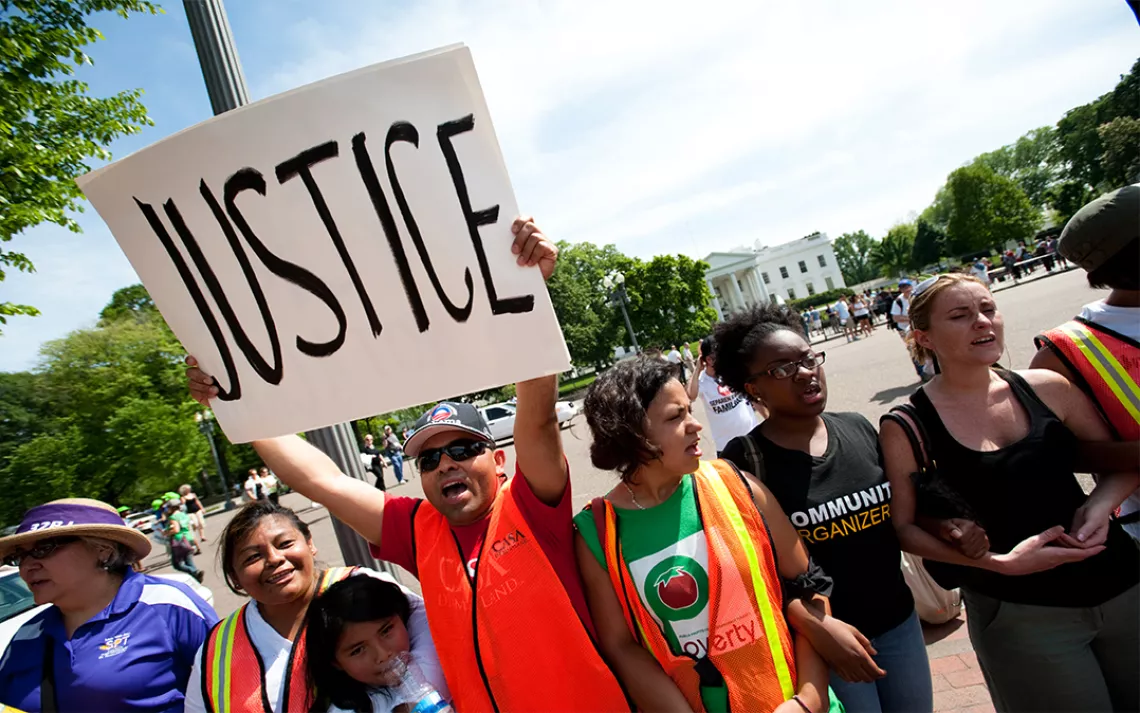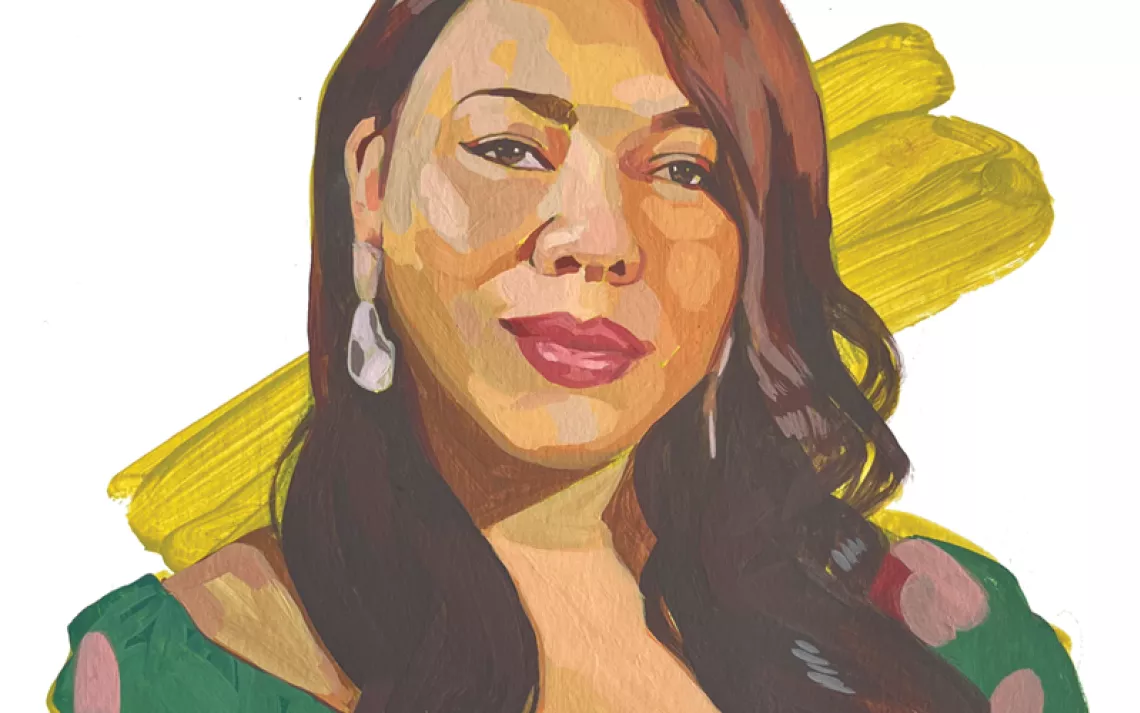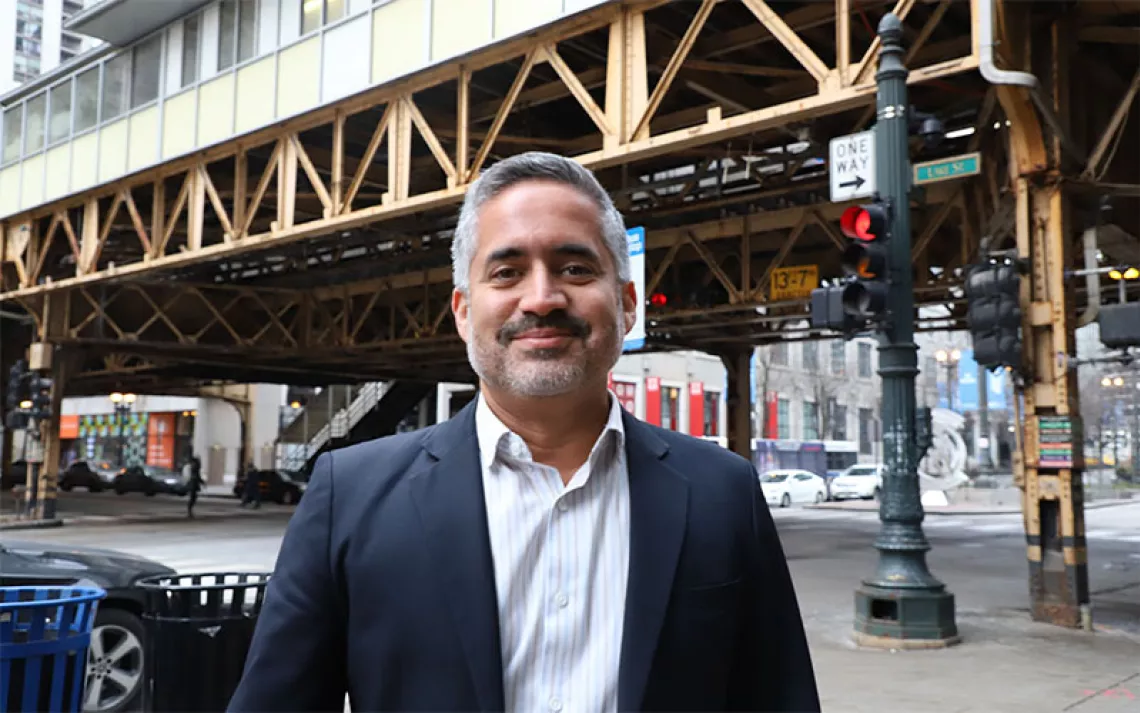Here Comes the Crackdown on Dissent
As activism grows, states attempt to criminalize protest

Photo by rrodrickbeiler/iStock
We live in tempestuous times. Black Lives Matter and the election of Donald J. Trump have brought waves of protest and activism coast to coast. On January 21, upward of 4.6 million Americans joined the Women’s March, and activists are gearing up again for the April 22 March for Science and the People's Climate March on April 29.
Republican-dominated state legislatures are evidently feeling the heat, because so far, at least 16 of them have proposed legislation to criminalize or otherwise impede public protests. North Dakota’s House Bill 1203 would have even allowed automobile drivers to run over and kill any protestor obstructing traffic or a highway “as long as a driver does so accidentally.” (The bill was voted down on February 13.) Similar automotive and driver-related bills have been filed in Florida and Tennessee.
“Where protests flourish,” says the American Civil Liberties Union, “antiprotest bills follow.” Traci Yoder, director of research and education at the National Lawyers Guild, writes that “these bills indicate that protesting has certainly become a threat again.”
North Dakota, the site for months of protests against the Dakota Access Pipeline, has sponsored many of these bills. On February 23, Governor Doug Burgum signed into law a variety of bills “designed to protect landowner rights, deter criminal activity, and expand the ability to appoint outside law enforcement officers to assist North Dakota agencies.” The bills expanded the scope for criminal trespass, made wearing a mask or hood while committing a crime a class A misdemeanor, increased penalties for riot offenses, and allowed the state’s attorney general to appoint “ad hoc special agents” to enforce the law. House Bill 1193, still under discussion, would punish protesters with up to 30 days in a private prison facility or a $1,500 fine. Those who create “economic harm” of more than $1,000 to the government or an individual could spend five years in prison and/or pay a $10,000 fine.
Measures in Arizona, Michigan, Mississippi, and Virginia have either been shelved or killed, but bills in at least nine states remain under legislative review. Iowa aims to make blocking highways and traffic a felony, and Washington hopes to establish penalties against actions like blocking highways, which it calls “economic terrorism.” Colorado’s SB17-035, inspired by the DAPL protests, would change the current class 2 misdemeanor of “destroying, breaking, removing, or otherwise tampering with equipment associated with oil or gas gathering operations” to a class 6 felony. Indiana’s SB 285 originally would have allowed police to shut down highway protests by any means necessary. Minnesota would allow the government to sue for “public-safety-response costs related to unlawful assemblies and public nuisances.” Oregon’s SB 540 would require a “community college or public university to expel any student convicted of riot,” and Missouri would make it a crime to conceal one’s identity if “committing the crime of unlawful assembly” or “rioting.” As reported by the New York Times, Republican legislatures in Massachusetts and North Carolina also plan to file similar legislation.
“The knowledge that these bills are being considered in many state legislatures, regardless of their status, is likely to have a chilling effect on dissent,” says the NLG’s Yoder. “Few people would be as willing to protest if they thought they could easily be arrested, fined, imprisoned, or even killed. The lack of clarity over where bills stand in the legislative process, the likelihood they will pass in their current forms, and the actual consequences if they do is already enough to cast doubts among those who intend to protest.”
All these bills would seem to run afoul of First Amendment guarantees for freedom of assembly, some quite openly, like Georgia’s “Back the Badge” bill and Oklahoma’s HB 1123. The Georgia bill, ostensibly designed to protect first responders, would increase penalties for those blocking highways, streets, or sidewalks. HB 1123 would make trespassing on “property containing critical infrastructure” a misdemeanor, and vandalizing such infrastructure a felony. In responding to such bills, the ACLU cites a 1939 Supreme Court ruling, which found that use of public streets for assembly and to contribute to the “marketplace of ideas” is “a part of the privileges, immunities, rights, and liberties of citizens.”
As of this writing, antiprotest bills in Iowa, Washington, Colorado, Indiana, Minnesota, Oregon, and Missouri as well as those listed above remain active in their respective legislative bodies. Yoder states that it is imperative “not to be demoralized or frightened into ceding the streets in the face of legislative attempts to curb mass protest.” Instead, she suggests, the solution is more organizing. “Now more than ever,” she says, “we must protect our right to dissent publicly and to disrupt business as usual.”
 The Magazine of The Sierra Club
The Magazine of The Sierra Club







